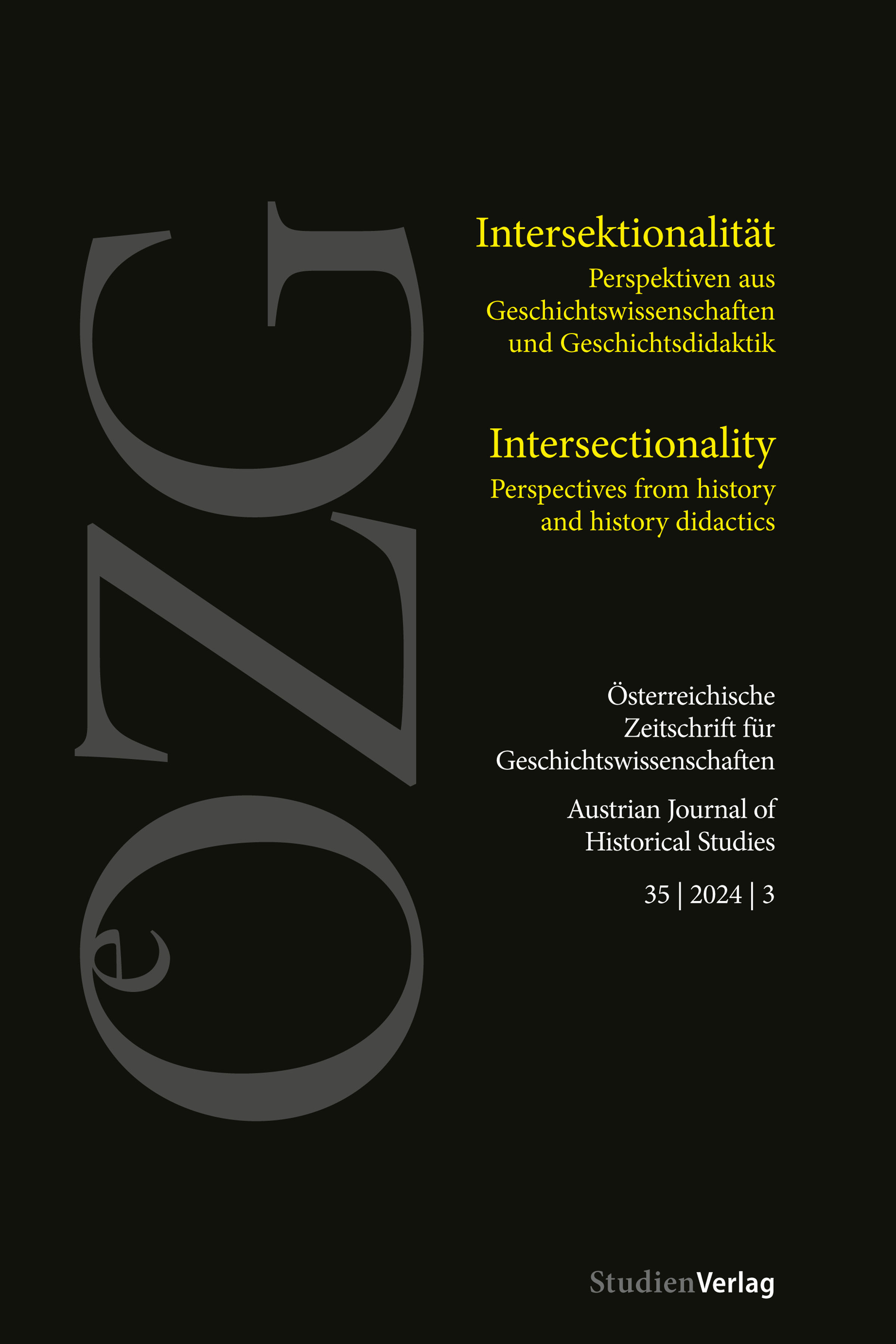Intersektionalität. Perspektiven aus Geschichtswissenschaften und Geschichtsdidaktik
Levke Harders & Heike Krösche
„Ich scherze oft, dass mir der Feminismus schon in die Wiege gelegt wurde. Ich wuchs als Tochter einer alleinerziehenden Mutter auf, die Vollzeit arbeiten musste, um uns den Lebensunterhalt zu verdienen. Ich konnte von klein auf beobachten, wie viele Menschen es als Makel gesehen haben, wenn eine Frau nicht verheiratet ist. […] Ich bin die erste und einzige Person in meiner Familie, die studiert hat. […] Ich habe dadurch schon früh verstanden, dass es mehrere Ebenen gibt: die gesetzliche Lage, was Frauen dürfen, und die gesellschaftliche, was Frauen sollen. [...] Auch andere Unterdrückungssysteme wie Rassismus, Klassismus, Homofeindlichkeit, Transfeindlichkeit und Ableismus (Diskriminierung von Menschen mit Behinderung, Anm.). Diese Unterdrückungssysteme funktionieren oft gemeinsam. Es geht darum, bestimmte Gruppen klein zu halten, damit eine bestimmte Gruppe – der weiße Mann, der das neoliberale System stützt – on top bleiben kann. Deshalb werden Stimmen zu einem intersektionalen Feminismus […] immer lauter. Ich denke, dass in früheren Kämpfen viele andere diskriminierende Systeme nicht so beachtet wurden.“ (Marlene Streeruwitz / Vanessa Spanbauer, Gemeinsame Sache, in: Rondo exklusiv, Beilage zu Der Standard, 30.09.2022, S. 34-37).
Read more about Intersektionalität. Perspektiven aus Geschichtswissenschaften und Geschichtsdidaktik


